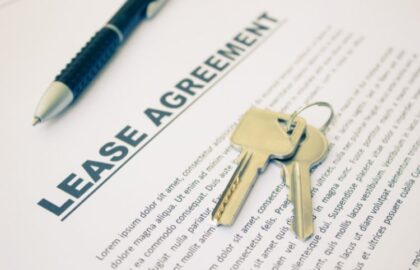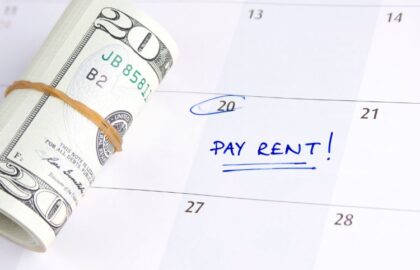
Have you ever pondered over how real estate investors and landlords handle their investment properties?
When you envision a real estate investor, images of prosperity, apartment complexes, and bustling offices are likely to come to your mind.
You’ll hardly associate these investors with mundane tasks such as collecting rental income and scheduling regular inspections. This is where property managers step in.
They take care of everything from fixing leaks to collecting rent. They make sure that real estate assets are well-maintained, clients are satisfied, and financial goals are met.
What Is a Property Manager in Real Estate?
A property manager oversees the day-to-day operations of properties on behalf of the landlord or real estate agency. Their responsibilities include a wide range of tasks, including maintenance coordination, tenant relations, adjusting rental agreements, and ensuring compliance with legal regulations.
Essentially, property managers act as the primary point of contact for property owners and prospective tenants, ensuring that the properties are well-maintained, profitable, and in compliance with relevant laws and regulations.
When a real estate owner decides to enlist the services of a property management company or a property manager, they typically enter into a formal agreement outlining the terms and conditions of the relationship.
Once both parties have a clear understanding of what is required, they proceed to outline the scope of services in the agreement. This may include tasks such as rent collection, property maintenance, tenant screening, lease enforcement, accounting, and financial reporting.
The agreement will specify the terms and conditions under which the property manager will operate. This includes the duration of the contract, the fee structure (e.g., flat fee, percentage of rent collected), payment schedule, and any additional expenses the owner may be responsible for.
Click here for more information on what property managers charge.
Key Responsibilities of a Property Manager
The property manager’s main role is to take care of the property, handle the tenants, and act on behalf of the owner. Here’s a rundown of the key responsibilities:
Property Maintenance
Keeping things shipshape is a big part of what property managers do. They make sure the property stays in tip-top condition by arranging regular check-ups, fixing things up when needed, and ensuring that everything runs smoothly.
Here are some examples of maintenance tasks property managers may be responsible for:
- Routine Maintenance: This includes regular upkeep tasks such as:
- Lawn care and landscaping maintenance
- Cleaning common areas (hallways, lobbies, etc.)
- Changing HVAC filters
- Inspecting and maintaining smoke detectors and fire extinguishers
- Repairs and Maintenance Requests: Property managers handle repair requests from tenants and coordinate necessary repairs, which may include:
- Plumbing repairs (e.g., fixing leaks, unclogging drains)
- Electrical repairs (e.g., fixing faulty wiring, replacing light fixtures)
- Appliance repairs or replacements
- HVAC system maintenance and repairs
- Carpentry work (e.g., repairing doors, windows, cabinets)
- Painting and touch-ups
- Emergency Maintenance: Property managers are often on-call to address emergency maintenance issues promptly, such as:
- Burst pipes or water leaks
- Electrical emergencies (e.g., power outages)
- Lockouts or security breaches
- Heating or cooling system failures in extreme weather conditions
Tenant Relations
Building good relationships with tenants is key to keeping everyone happy. Property managers handle all sorts of tenant-related stuff, like finding the right people to live or work on the property, sorting out lease agreements, and being there to answer any questions or concerns tenants might have.
They act as the go-between for tenants and property owners, making sure everyone plays by the rules and resolving any disagreements that crop up.
Financial Management
Managing the money side of things is another important part of the job. Property managers collect rent, keep track of costs, and make sure everything stays within budget.
They also provide regular updates to property owners, so they know how things are going financially.
By staying on top of the numbers, property managers help ensure that the property stays profitable and well-managed.
Legal Compliance
Staying on the right side of the law is a must for property managers. They make sure the property meets all the legal requirements, from obtaining the necessary permits to handling any legal issues that pop up.
Property managers keep up-to-date with the latest regulations and ensure that the property stays in compliance, protecting both the owners and the tenants.
See also information about how much landlord insurance is in Qld.
Marketing and Leasing
Finding the right tenants is essential for keeping the property thriving. Property managers handle the marketing side of things, from advertising vacant units to showing potential tenants around.
They screen applicants, negotiate lease agreements, and make sure the property stays competitive in the market.
Benefits of Hiring a Property Manager
Thinking about hiring a property manager? Here are some reasons why it’s a great idea:
Time and Stress Reduction
Let’s face it, managing properties can be a handful. By hiring a property manager, you can offload all those day-to-day tasks and free up your time for other things.
No more late-night maintenance calls or dealing with tenant issues while you’re on vacation. With a property manager in your corner, you can relax knowing that everything is being taken care of.
Expertise and Efficiency
Property managers are pros at what they do. They know the ins and outs of property management inside and out, from handling maintenance issues to following legal regulations.
Their expertise and efficiency mean that things get done quickly and effectively, saving you time and hassle in the long run.
Improved Tenant Satisfaction
Happy tenants are the key to a successful property investment. Property managers excel at building positive relationships with tenants, addressing their needs and concerns promptly, and ensuring that they have a great experience living or working on your property.
By providing excellent customer service and creating a welcoming environment, property managers help keep tenants satisfied and loyal.
Qualities of a Good Property Manager
What makes a property manager truly stand out? Here are some key qualities to look for:
Communication Skills
Effective communication is essential for any property manager. They need to be able to clearly convey information to both property owners and tenants, whether it’s discussing maintenance issues, explaining lease terms, or addressing tenant concerns.
A property manager who can communicate openly and effectively makes your life a lot easier.
Organisational Skills
Property management involves juggling multiple tasks and responsibilities, often on tight deadlines.
Successful property managers are highly organised individuals who can keep track of everything from maintenance schedules to financial records.
Their ability to stay organised ensures that nothing falls through the cracks and that the property runs smoothly day in and day out.
Problem-Solving Abilities
No two days are the same in property management, and unexpected challenges can arise at any moment. That’s why property managers need to be adept problem solvers who can think quickly on their feet and find creative solutions to complex issues.
Knowledge of Real Estate Laws and Regulations
Successful property managers stay informed about local, state, and federal laws governing rental properties, ensuring that the property remains in compliance at all times.
Their knowledge of legal requirements helps protect both property owners and tenants and mitigates the risk of legal issues down the line.
Final Thoughts
In conclusion, property managers are the heroes behind the scenes of the real estate industry, providing essential support to property owners and ensuring the smooth operation of their investments.
With their expertise in maintenance, tenant relations, financial management, legal compliance, and customer service, property managers play a vital role in maximising property value and tenant satisfaction.








